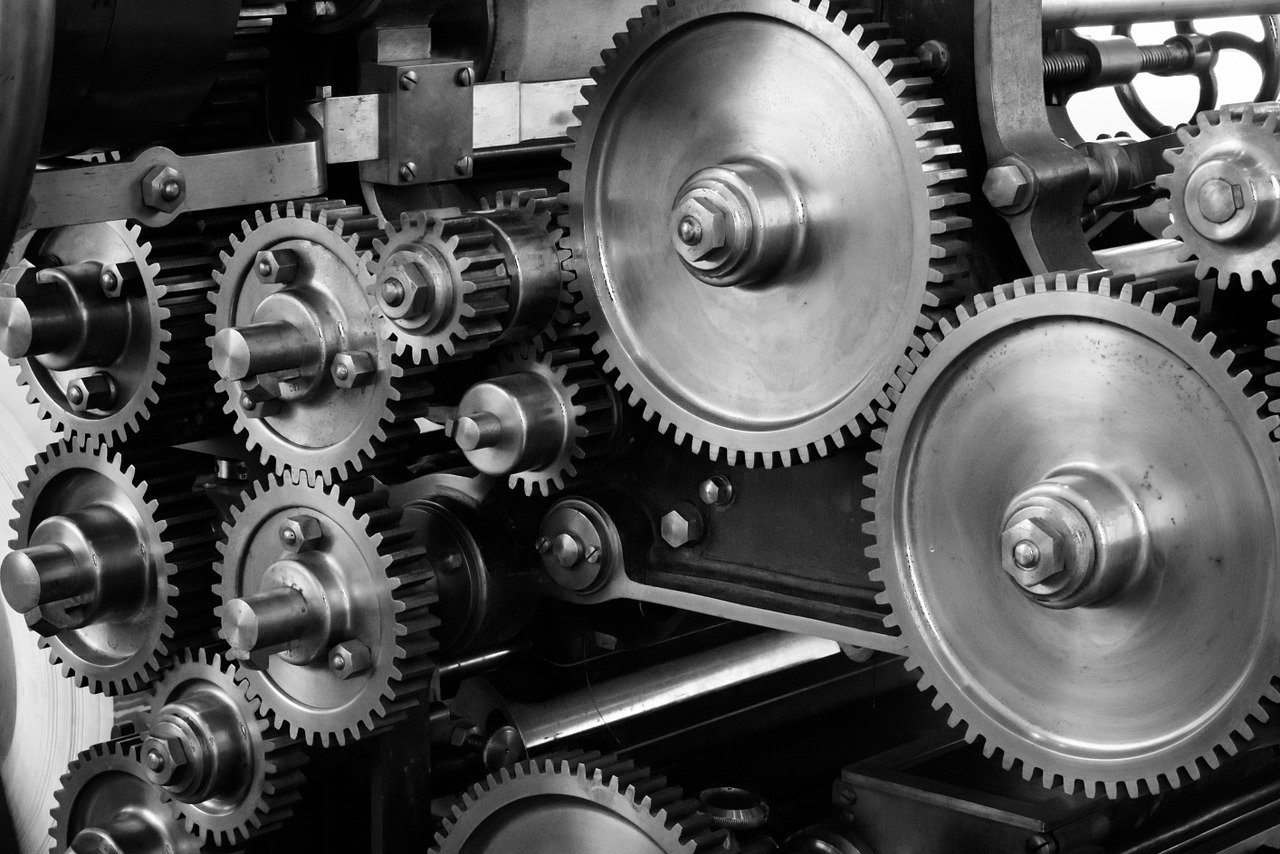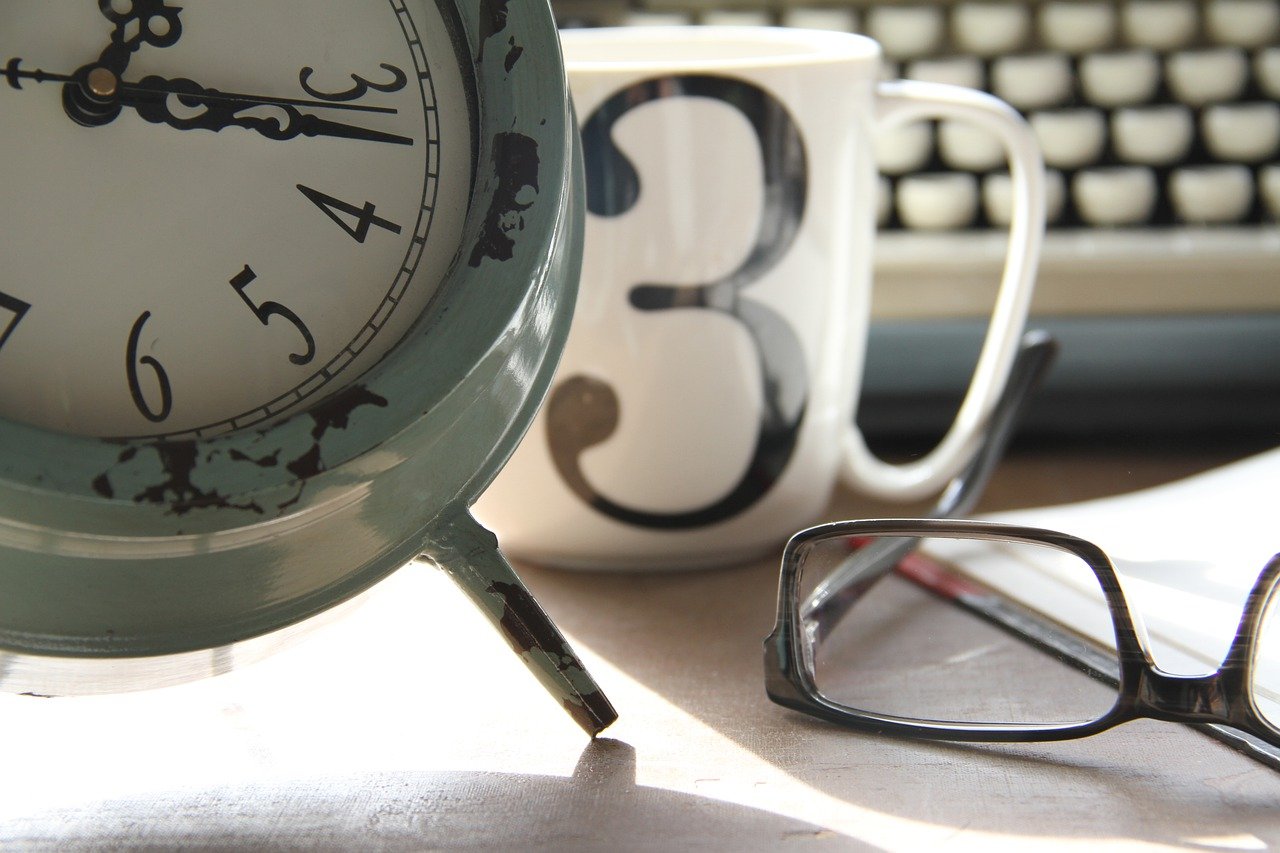
The key skill I advocate for people to engage with for being productive – and by that I mean living your best life (not just work!) – is planning. You will consistently fail to put yourself in the right place at the right time for the right task if you don’t plan meticulously.
Planning means that you are where you need to be when you need to be there and in the right gear for the task. Being in the right gear also helps you to relate effectively to those around you. As well as knowing the ‘what to do’ and ‘why to do it’ of self-care we need to think about the when and where of self-care. We also need to be mindful of the impact we have on the self-care of others – both positive and negative. Remember, when I say self-care I don’t just mean the stuff you do to rest and recover. I also mean the self-care you engage in by being ready for tasks. In the right frame of mind and in the right place. Free from distractions if that’s what you need!

I keep mentioning gears – so let me tell you about this model that I heard about from….theGiANT Liberator Podcast hosted by Jeremie Kubicek and Steve Cockram. Find it here.
The Gears idea is not my idea. It is there’s. Although I’ve modified it slightly as I didn’t quite agree with a couple of points (despite their worldwide success!)
They suggest we spend our time in one of 5 gears – like the gears in a car. And it’s crucial to be in the right gear at the right time and in the same gear as those around us. So let’s have a look at what they say about the gears – slightly interpreted by me!

1st Gear: Rest and recuperation
In a car first gear gets you going from a stationery position. First gear helps you get started. Going into first gear will also slow you down (ask anyone who has gone to change into 3rd gear in a car and hit first instead!) And first gear give you lots of control. When you want to do a tricky manoeuvre you need to be in first gear. So this is the gear to be in to get started or to move into to slow down to rest and recover.
It’s so important not to see self care as a ‘fall out’ option – it’s not something we need to do when we’ve ran out of energy, resolve, or personal resources. It’s something we do to maintain those things as best we can and we have to go to it before we hit problems – it’s a whole life thing. So getting into first gear regularly is very important.
We need to rest physically and mentally as good rest restores our attention to task. The problem with rest is we don’t do it often enough. Caroline Webb suggests we need a pit-stop strategy. We need micro pit-stops – a few minutes here and there for a quick recharge. Then a medium size pit strategy maybe at lunch time to replenish resources for the afternoon. And then a macro pit strategy for evenings and weekends. What are you going to do when you have a pit-stop to recharge?
Being outdoors is good for beating stress. Research has shown that from a psychological perspective it can be more effective than indoor exercise particularly around managing every day hassles and feeling mentally well balanced. Being outdoors in the early morning sunlight primes the process for sleep at the end of the day. Walking for 30 minutes beats stress and means you’ve already had some great physical exercise without barely trying. Walking mindfully, and deep breathing, is good for you. Research with social workers who engaged in mindfulness showed a reduction in sickness and stress levels…. suck in that fresh air!

2nd Gear: Family and friend’s time
How we spend our time resting can be both a solo activity and an activity with others – rest is sometimes about actively engaging (trips out, going for a walk with others) as well as taking yourself away (journaling, meditation, walking on your own). Spending time with family is so important for our well-being and relationships. Been in 2nd gear when you’re with your family and they are in 2nd gear is essential.
In 2017 researchers Izenstark and Ebata wanted to see if time outdoors led to better attention on tasks and a strengthened a family bond. They selected mother-daughter pairs where the daughter was between 10 and 12 years old. Firstly, they were tasked with going for a walk outside or around shopping centre. Their ability to attend to a task was tested before and after the walk and then they were asked to play a game together that required teamwork.
Those who benefited the most were the mother-daughter pairs who had walked in the natural setting rather than in the shops. Positive interactions between mother and daughter improved after the outdoors walk. Attention was improved for the mothers during the nature walk and during both walks for the daughter. The nature walk created a positive impact on both cohesion and closeness. The mothers and daughters were unanimous – the nature setting was more relaxing or as psychologists call it – Softly Fascinating.

3rd Gear: Social Connections (Friends Family & Colleagues)
I’m thinking here of the time you spend with colleagues particularly, not doing the work but socialising. Time spent socialising in work settings or during breaks at work is really important. The relationships we have at work have an impact on overall quality of life but also on the psychological safety we feel in those places. That’s the ability to feel comfortable enough with a group of people that you bring your authentic self to the work you do. You feel comfortable sharing all of your ideas and are part of the team. That chat making coffee or at the water cooler is so important.
The connections we share beyond our most intimate family and with our friends are also important for our well being. The secret in the workplace is to not let people in 3rd gear get in the way of you when you are in gears 4 and 5.

4th Gear: Work Tasks
The ‘Work Tasks’ I’m thinking of here for 4th Gear are all of those things that you need to do that maybe connect you to other people or get things organised for the day. Your planning time, quick conversations with colleagues or your manager to check things out, emails, phone calls. Short tasks that you need to do to get things moving forward or to keep things moving forward. But not your ‘Deep Work’ tasks. They are for 5th Gear. You should start your day in planning mode – visualising you day, checking you have all the things you need to hand for all of your tasks, and at the end of the day making sure all is in order for tomorrow. This helps you connect at the start of the day with tasks you need to do and then disconnect from work at the end of the day – so you can leave it behind.

5th Gear: Deep Work
Deep Work is the work that needs your absolute focussed attention to the elimination of all distractions. Work that requires you to be in ‘flow’. Crucial here is right place and right time for the right task. You can’t do Deep Work if you are wondering whether everything is sorted for later or tomorrow or tonight or if there are unmanaged emails – that’s why you have to move through the gears in order. You can’t do Deep Work effectively if you are constantly being interrupted.

Gear Problems
Our relationships with people and tasks work best when we are in the right gear at the right time for the right task – and in the same gear as those around us and when in social environments or communal environments (workspaces or with family friends and colleagues) we are in the same gear.
Imagine you’re in 4th Gear – working on your planning or short tasks or 5th Gear Deep Work. Maybe you’re writing a report or you’re deep in reading something – getting stuff done – and someone enters your workspace in 3rd Gear (Social Connections). ‘How was your night’ ‘Did you see that thing on the TV’ ‘You’ll never guess what happened to me on the way in’ ‘do you want a coffee’. You have a choice – either stay in 4th or 5th gear and try your best to stay focussed (difficult!) or you change down to 3rd gear and match them causing you to stop work. Now – there are positives and negatives in every situation – I don’t knock work based conversations for beating stress – but there is an impact. This is particularly difficult in organisations that allow us to work flexibly. I’m a 7.30/8 person for getting into work – so by the time some of my colleagues arrive at 9/9.30 I’m at least in Gear 4 or even Gear 5. They are in Gear 3 hell bent on getting me to engage. The problem with human nature is that we don’t like to ignore people, so we change down and stop what we are doing – this means we take a productivity hit because of the actions of someone else. We need to be mindful of this.
Later in the day….. Imagine you need to be in 5th Gear because you’ve got some deep work to do – that report to write – and the chatter keeps dragging you back to 4th Gear or 3rd Gear. The irony is it’s often someone off-loading – often about how much they have to do and how they wonder how they are even going to get it done! They are not getting on with their task and now they’ve stopped you! Right place for right task! If you need quiet find quiet. My hope, as one of the consequences of this last year is that organisations can see that people do get stuff done when in other places. Deep work needs quiet. For some quiet is at home. Or maybe we need some sort of isolation booth in the office for people to deep work in. One thing is for certain, noisy open plan office environments are not good for deep work. They are good though for collaboration and idea exchange and professional support – so I’m not knocking them…. Right place for the right job.
Another example….. you get home and everyone else is in 2nd gear – family time – and your head is still at work in 4th gear – working mentally on all of those unfinished and unmanaged tasks – collision course! Right place for the right task – this is your time and your family and friends time. Maybe you’re at home and you feel the need to check your work emails dragging yourself into 4th Gear when you should be in 2nd gear or 1st. We need to think carefully about the message this sends to the people around us.

So, we need to move through the gears
You start the day coming out of a period of rest – you will have been asleep (Gear 1) – you may even do some Gear 1 activities when you start your day – quiet cup of coffee, or read a book, maybe some yoga. You may well then move into Gear 2 and connect with those around you before heading off to work where you will hit Gear 3 and maybe pass the time of day with colleagues. You will then need to move into Gear 4 – planning, emails, short tasks and then eventually you will settle down into Gear 5 Deep Work. You will move between 4th and 5th Gear throughout the day and slip into 3rd Gear for lunch. At the end of the day you will come down to Gear 4 and deal with short tasks that have accumulated while you have been Deep Working. You will change to Gear 3 as you bring your working day to an end, then into Gear 2 as you connect with family and friends and then Gear 1 as you rest. You might, on an evening or a weekend, drift between Gears 1, 2, and 3, but what is crucial is right gear for the right ‘job’. Right gear allocated to the right time, and being conscious of the gear those around you are in.
Structure is everything to generate flow. Flow is the art of being in the moment to the exclusion of everything else – with your family totally, with your colleagues totally, one your own totally for deep work or for rest. Planning and routine are the dominant forces in this area
Right gear – right environment – for the right task – at the right time
That takes planning

